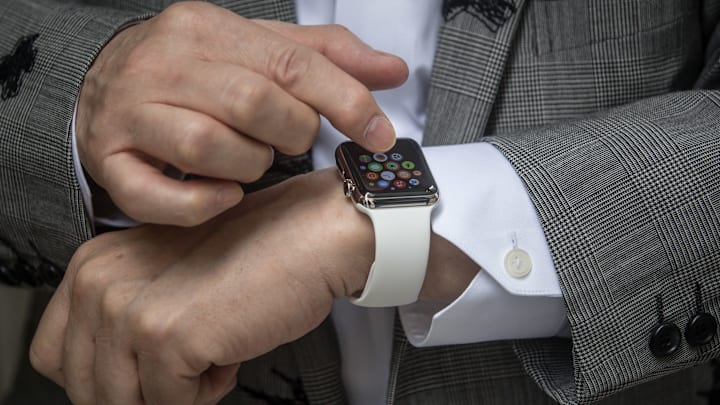The Pros and Cons of Smartwatches for Everyday Use

Smartwatches have evolved from simple digital timepieces to powerful wearable gadgets packed with features. From tracking fitness and managing notifications to making calls and controlling smart devices, smartwatches offer convenience and connectivity right on your wrist. But are they really worth it for everyday use? Let’s dive into the pros and cons of smartwatches to help you decide if they’re a must-have or just another tech accessory.
The Pros of Smartwatches
1. Health and Fitness Tracking
One of the biggest appeals of smartwatches is their ability to track health and fitness metrics. Whether you’re counting steps, monitoring heart rate, or tracking sleep patterns, these devices help users stay on top of their well-being. Advanced models even offer blood oxygen (SpO2) monitoring, ECG readings, and stress tracking, providing valuable insights into overall health.
For fitness enthusiasts, built-in GPS tracking, workout modes, and calorie counters make smartwatches a great companion for exercise, whether you're running, swimming, or cycling.
2. Instant Notifications and Calls on Your Wrist
Gone are the days of constantly pulling out your phone to check notifications. Smartwatches sync with your smartphone, delivering texts, emails, and app alerts directly to your wrist. Some models even allow you to answer calls, reply to messages, and use voice assistants, making communication seamless.
This is especially useful in situations where checking your phone isn’t practical, such as during meetings, workouts, or when driving.
3. Convenience and Customization
Smartwatches offer quick access to essential functions, such as setting reminders, checking the weather, controlling music, and even making mobile payments with Apple Pay or Google Wallet. Many also support voice assistants like Siri, Google Assistant, or Alexa for hands-free control.
Customization is another advantage—most smartwatches allow you to change watch faces, swap bands, and personalize widgets to fit your style and needs.
4. Safety and Emergency Features
For those concerned about safety, smartwatches come with fall detection, emergency SOS, and location-sharing features. Some models, like the Apple Watch, can automatically call emergency services if they detect a hard fall or abnormal heart activity. These features are particularly valuable for elderly users or individuals with health conditions.
5. Productivity and Time Management
Smartwatches can help you stay organized with calendar reminders, alarms, and to-do lists. Many models also have built-in timers and focus modes that can boost productivity by minimizing distractions while keeping important notifications within reach.
The Cons of Smartwatches
1. Battery Life Concerns
Unlike traditional watches that can last for years on a single battery, smartwatches need frequent charging—sometimes daily, depending on the model. While some brands offer longer battery life (like Garmin and Fitbit models), others, such as the Apple Watch, require charging almost every night.
This can be inconvenient for users who prefer wearing their watch overnight for sleep tracking, forcing them to find a charging routine that works.
2. High Costs
Smartwatches can be expensive, with premium models from Apple, Samsung, and Garmin costing anywhere from $250 to $800 or more. While budget-friendly options exist, they often lack advanced features like ECG monitoring, standalone GPS, or high-quality displays.
For some users, the cost may not justify the benefits—especially if they already have a fitness tracker or smartphone that covers similar functions.
3. Limited Screen Size and Functionality
While smartwatches offer convenience, their small screens can be limiting for tasks like reading long messages, browsing, or typing. Although voice commands help, they aren’t always practical or accurate, making certain tasks easier to handle on a smartphone.
Additionally, third-party app support varies between platforms. Some watches lack key apps or have limited compatibility with certain services, which can be frustrating for users who rely on specific apps.
4. Dependence on a Smartphone
Most smartwatches require a companion smartphone to unlock their full functionality. While some high-end models have LTE connectivity (allowing them to make calls and use apps without a phone), these versions tend to be more expensive and require a separate data plan.
For users looking for a fully independent device, a smartwatch might not completely replace a phone—at least, not yet.
5. Distractions and Digital Overload
While smartwatches help keep you connected, they can also contribute to constant distractions. The temptation to check every notification, message, or app update can lead to increased screen time and reduced focus, rather than productivity.
To counter this, some users choose to disable unnecessary notifications, but for those prone to digital overload, a smartwatch might feel like another distraction rather than a convenience.
Final Verdict: Is a Smartwatch Right for You?
Smartwatches offer undeniable convenience, advanced health tracking, and seamless connectivity, making them a valuable tool for many users. However, factors like battery life, cost, and dependence on smartphones can be drawbacks.
If you’re someone who values fitness tracking, productivity tools, and instant notifications, a smartwatch is a great investment. However, if you prefer minimal distractions and longer battery life, a traditional watch or fitness tracker might be a better fit.
Ultimately, the decision comes down to personal lifestyle and priorities. Whether you embrace wearable tech or stick to classic timepieces, the future of smartwatches is only getting smarter, sleeker, and more capable.